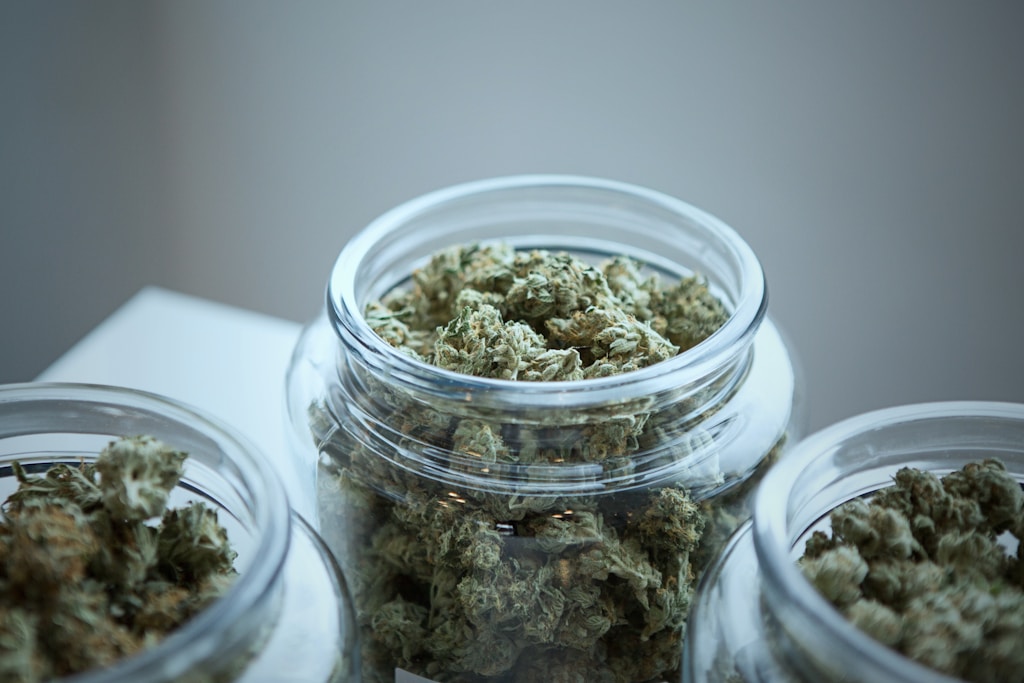
I have been wanting to write this up for a while, it all happened before Xmas. It’s a good story, with some fun twists and turns, a few unexpected personal details, a flashback to the early 1980s, and a surprise ending. Here we go.
Part One
Medicinal cannabis was legalised in the United Kingdom a couple of years ago, but it’s uptake, and availability until recently, has been limited.
Professor David Nutt’s organisation, Drug Science, created Project Twenty21 which has the ambitious aim of registering 20,000 medicinal cannabis patients by the end of 2021, to assemble a database demonstrating the efficacy of medicinal cannabis treatment for a wide variety of conditions. It is a very noble aim.
The first hurdle one must leap to access medical cannabis in the U.K. is financial. Medicinal cannabis is expensive, in many cases more so than black market equivalents. Plus there are additional costs associated, including consultant fees, which are also not cheap.
Project Twenty-21 approved products, and clinics aimed to keep these costs down for certain selected products, but this subsidy doesn’t cover the entire range of products available domestically. Additionally, there are admin fees, prescription admin fees, and postage, or delivery fees. It all adds up. Many people reconsider at this point, as it can be cheaper to medicate via the black market, or to just grow your own.

The other barrier to accessing treatment is that you must meet the following criteria. You need to suffer from a qualifying condition. There are a wide range are on that list, including chronic pain, and anxiety. And you need to have tried two licensed pharmaceutical medications that were ineffective in improving your condition.
I was initially sceptical of all of this, but Project Twenty21 caught my attention. I have used cannabis medicinally for nearly 40 years, to cope with crippling anxiety, and varying degrees of suicidal depression. My mental health has benefitted greatly from my cannabis use, it has saved my life countless times over the years. It still helps me to this day.
If you would like more information on how to become a patient yourself, and learn more about the costs of consultations, and the available products, check out Cannapedia. It’s a great place to start. There is also a very lively subreddit on Reddit for UK Medicinal Cannabis patients. You can peruse many posts from patients, sharing their real experiences, both good and bad, of accessing treatment.
It was interesting to read about the experiences of others, along with the hiccups people were encountering.
For example, even though the United Kingdom is the world’s number producer of medical cannabis, nearly all the products currently prescribed here are imported. That’s meant that people have had long waits to receive their medication. Availability is slowly improving, and soon, more domestically produced products will be licensed.
Besides costs, there were also some complaints around the clinic admin side of things, many were slow to respond, or weren’t that helpful. The industry really is in its infancy here, and there is definitely a learning curve for patients, and practitioners alike. The system is far from perfect, but it is the only one we’ve got. It is certainly a step up over having no legal options, but of course it could be improved.
Much of what I read was positive, especially about the doctors who staffed the clinics. They are all experts in treating people with medicinal cannabis, something you will not easily find anywhere in the NHS. I am not going to name the clinic I contacted.
I have been speaking to my current GP about my medicinal cannabis use for years, much to her amusement. The Endocannabinoid System wasn’t discovered until the 1990s, it wasn’t in medical school textbooks when my doctor was in medical school. I’d bet you there isn’t much in those text books about it, even now.
I am fairly certain that underneath many, if not all of my physical, and mental health issues, is a cannabinoid deficiency. It’s why I feel, and function better when I nourish my endocannabinoid system. The NHS is way behind in understanding this, and Project Twenty21 aims to provide evidence to change their views.
Having read about obtaining a prescription, I decided to pursue one myself. I rationalised that it would be worth the additional expense to finally explore legal options, and the legal protections of a prescription. And I was certainly curious about trying legal products.
Currently, legal cannabis dispensaries provide various strains of cannabis flower, and cannabis oils, in various strengths, and THC/CBD ratios. Nearly all the flower, or bud, have black market equivalents, and names, but the idea is that medicinal production maintains quality, and consistency.
I met the criteria for access via Product Twenty21. The easiest condition to pursue treatment in my case, is anxiety. My GP would not argue with that diagnosis. And I had tried two licensed medications to treat my anxiety a very long time ago, so that box was ticked as well. My only concern was that I had tried them in the early 1980s, when I lived in America.
I did some research into the clinics and they all seemed fairly similar. Some of them are owned, and run by the medical cannabis producers themselves, and they are known to try to steer you towards their own-produced products. As long as you are aware of that, it didn’t seem to be a big issue, so I chose one based on cost.
When I applied, I contacted them directly to confirm that my US medical history wasn’t accessible, and was told as long as the two licensed medications I tried were mentioned in my medical history from my current GP, it would not be an issue. It didn’t matter when or where I tried those two medications, so my concern was unnecessary.
I booked a telephone appointment with my GP to discuss all this, and told her I wanted to access medical cannabis. She immediately, almost like a reflex, told me she can’t prescribe cannabis. Sigh. I know that, I told her. I wanted to access a private prescription, and all I needed from her is a summary of my diagnosis, and care regarding anxiety, which included a mention of trying two licensed medications when I was living in America in the 1980s. My GP was happy to provided this, but it took a couple of weeks.
I was excited, for the first time in my life, I was going to have access to legal cannabis. No more hiding In the shadows, I could finally speak up, and be a very public advocate without fear of arrest or judgement. I was going to be respectable. And first the very first time, fully legal. This was going to be life changing. This was going to be good.
End of Part One.
Part Two
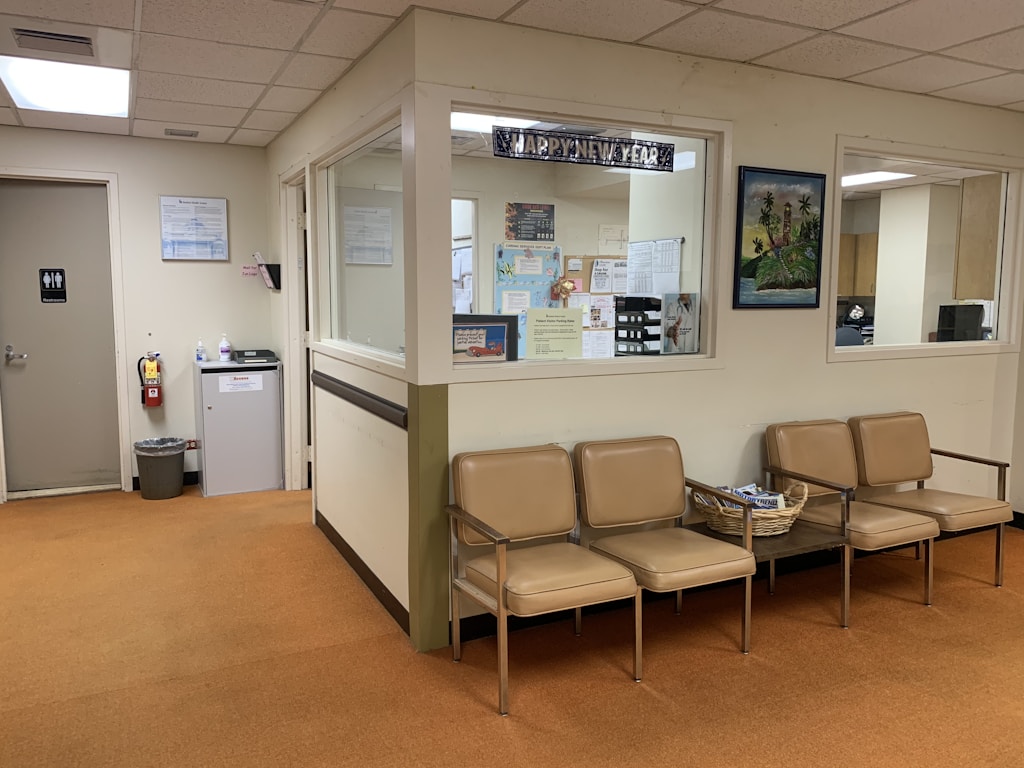
A couple of days after I submitted my summary of care to the clinic, I heard back from the patient coordinator. It was the same one that told me everything would be fine when I spoke to her initially.
I thought she was ringing to book my first consultation. She wasn’t. She rang to tell me because I had no proof of trying those two medications, they could not offer me a consultation. This was a gut punch, and a complete contradiction of her earlier advice.
She went on to explain that the clinical director reviewed my application personally, and said it was too much of a risk for them to help me, because if they were ever audited by the regulators, the paper trail demonstrating my suitability could be questioned.
The patient coordinator said I could try to get my 40 year old records from America. Or there was still one other way they could help me, and that is if I got my GP to write a recommendation that my condition may benefit from medical cannabis.
Thinking about my medical records from 40 years ago, sent me on a little detour journey into my ancient US history, from my own distant past. You can come along too.
I grew up in America, and between the ages of 17 and 19, I saw a psychologist, and then a psychiatrist, for anxiety, and depression.
I am 58 now, I was 13 years old when I had my first suicidal thought. Cool, huh? Quite frankly, it is a minor miracle that I was able to make anything of myself in life, but a couple of things helped me early on. Discovering cannabis at the age of 18 was one of them, and another was the first psychologist I saw.
The first shrink I saw, the psychologist, was a really cool guy who helped me lot. He was a big, boisterous, physically imposing man in his 60s, with a sharp sense of humour, and a great approach. I really liked him, he was super progressive. He treated me like an adult, and listened to me. I made progress under his care. And he gave me great advice, that still helps me to this day. I wish I kept seeing him, who knows how much more I would have improved?
So why did I stop seeing him? Even now, the reason makes me laugh, because you have to laugh, don’t you?
Periodically, my parents would join for a session, and at one of these meetings, the psychologist pretty much told my mother that her overbearing, controlling nature, was my biggest problem. And just like that, almost to prove his point, she stopped my weekly sessions with him immediately, and found me a different doctor. Told ya it was funny.
I didn’t like this second shrink nearly as much. He was a psychiatrist, meaning he was a medical doctor, and could prescribe.
He was also very cold, and Freudian, so his response to almost every question was this. “Well, what do you think?”. I think for a hundred bucks an hour, you should answer my goddamn questions. I did not get much out of my sessions with him, but he was far more acceptable to my mother, so there was that.
He prescribed me Xanax for my anxiety. I did not like it, it made me feel nauseous, and dizzy. He then prescribed Valium, which I did like, maybe a little too much, but the dosage was way too high, they were 10mg. They made me too sleepy, and weren’t a viable long term solution because I couldn’t function on them.
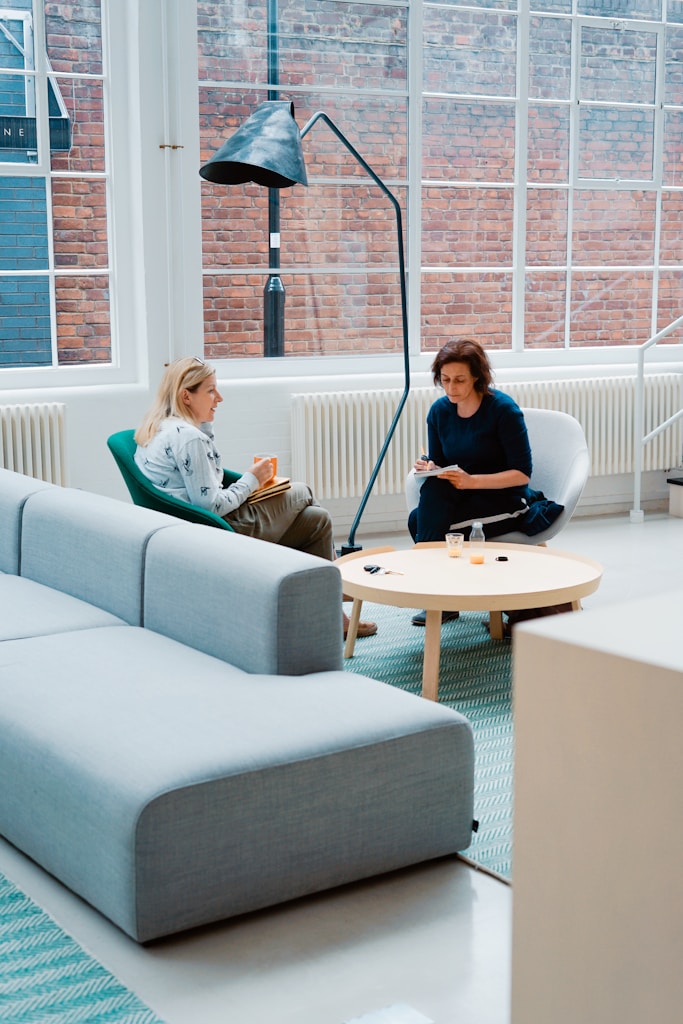
I was lucky, as both drugs are extremely addictive, and I could have ended up hooked on pharms at age 19. Instead, they put me off all psychiatric meds, and I have not agreed to a psychiatric prescription since. That psychiatrist was also the first to offer me antidepressants, back in 1982, but the other drugs had already put me off, and I declined, as I have countless times over the years.
It amazes me, even today, how quickly doctors offer people antidepressants. Go to your GP, tell them you’ve been feeling down, and see how quickly they offer you a prescription. No, don’t. I know they help some people, but I also know they harm others. Cannabis is a lot safer, and can be much more effective.
In 1981, I tried cannabis for the first time. I was still seeing the first guy, the psychologist. I remember talking to him about it, telling him how good it made me feel. He was never judgemental, he just told me not to get caught. Excellent advice!
I didn’t know it at the time, I didn’t understand it at the time, I didn’t even have the vocabulary to express it at the time, but I was self medicating with cannabis before I even knew it was a thing. All I knew was that if I smoked it daily, I felt normal. I could function. So that’s what I did, that’s what I have done, and that’s what I still do today. Back then, I worked full time, and went to college full time, at the same time, all while smoking weed to cope. All I can say is it worked for me, and still does.
I hadn’t thought about my early mental health history, in a very long time, but when I was dealing with the medicinal cannabis clinic, I went there. I had to. Turns out it is a key part of telling this story, of my experience in trying to access medical cannabis treatment. And that story is not done yet.
I decided to try to access my medical records from the early 80s in America.
I remembered the name of the second shrink, the psychiatrist who prescribed the two medications in late 1981. That’s nearly 40 years ago, what were the chances the doctor was still practising? And would he still have my files? I was about to find out.
I googled his name, and the name of the town where he practised. And I found him, and his phone number, and even a photo. I recognised him, though obviously he was a whole lot older.
I had no idea what I was going to say to his receptionist. “Hi, I was a patient 40 years ago, and I am trying to access medicinal cannabis in the backwards United Kingdom. They need proof I was prescribed a couple of drugs that were useless back in the day. Can you help?” At least they would be accustom to a bit of insanity in a shrink’s office. It definitely felt insane.
End of part 2
Part Three
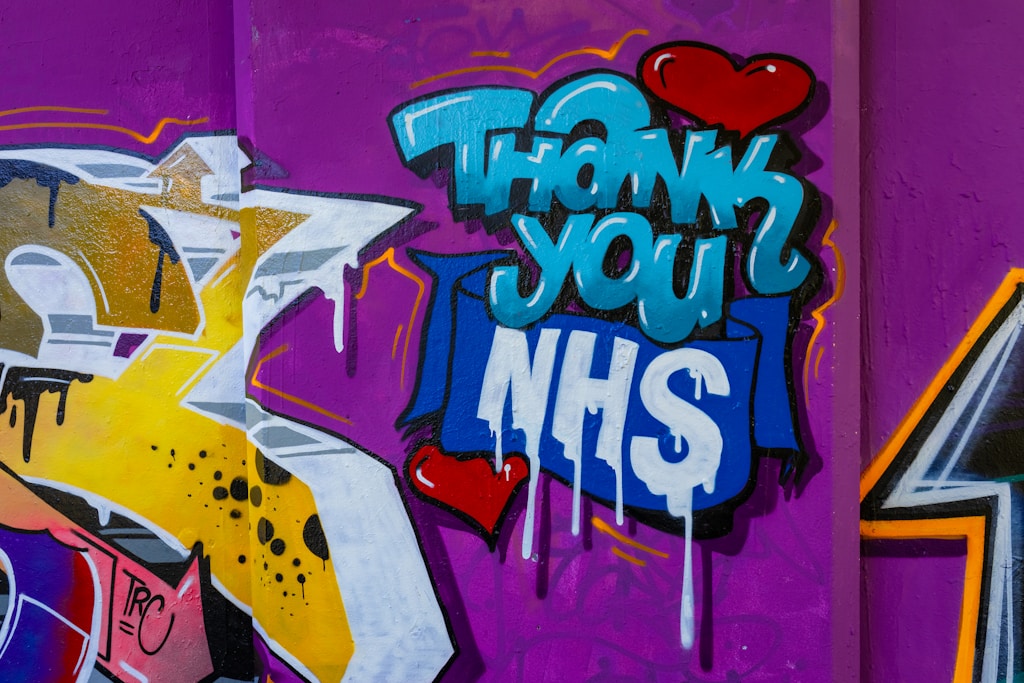
I dialled the psychologist’s phone number in New Jersey. Immediately, I was greeted with a recording, telling me the number was no longer in service.
My old psychiatrist must have retired, he would have been in his mid to late 70s. In that moment, getting my old records went from being incredibly unlikely to definitely impossible.
My absolutely last chance, according to the patient coordinator at the clinic, was a recommendation from my doctor. Having had it take weeks just to get a summary of my care, I was not optimistic at all, but I felt I had to try.
I booked another telephone appointment with my GP, the first of several in this round, to discuss it further with her. She did not feel comfortable recommending medicinal cannabis, though I explained to her repeatedly that what she was actually recommending me for was an assessment, from someone whose speciality is medical cannabis.
I like my GP, a lot, but my experience in dealing with her regarding all of this, is precisely why Project Twenty21 is so vitally important. The NHS still has a lot to learn when it comes to medicinal cannabis. The stigma, and ignorance needs to be replaced with data, and facts.
Finally, I sent my GP a letter. An abbreviated version is below. I’ve removed some personally identifying info, and some boring bits.
Dear Dr. – ,
It was good to speak to you yesterday, thank you for phoning.
I didn’t feel like I put my case for a referral to you very well. As this is all complicated, and in a new area of medicine here in the UK, I thought it would be best to put it all in writing to clarify the situation.
I am trying to join Project Twenty21, which is run by Professor David Nutt’s organisation, Drug Science.
Project Twenty21 aims to register 20,000 medicinal cannabis patients within the next year, to gather more data on the effectiveness of cannabis for a wide range of conditions, including Generalised Anxiety Disorder, which is my diagnosis.
As I have told you, I have used cannabis medicinally for nearly 40 years, and it has been remarkably, extremely beneficial to me for my entire adult life. The majority of patients accepted into the study have previously self medicated, so I am far from unique in that regard. To join Project Twenty21, I would be assessed by a specialist from the private clinic, and if deemed suitable, I would be prescribed a cannabis product precisely calibrated to my condition and needs.
At present, I source my medication via the black market, which means consistency and quality are often issues for me, and those would vanish, if I had a prescription for a medicinal product.
At this point, my only route to an assessment is a referral from you, I am not asking you to prescribe cannabis. All I am asking you to do is provide a referral to the clinic for an assessment by their specialist. It would be up to them to decide if I am suitable to join Project Twenty21 and receive a prescription.
While I appreciate you may have some scepticism regarding medicinal cannabis, I can assure you from decades of personal experience and research, that it is extremely effective, which is why the laws have finally changed in the UK. Rather than try to convince you myself, you should look into Dr. Raphael Mechoulam, one of the world’s leading experts on medicinal cannabis. He is an amazing and fascinating man. I hope you will read this article, I think you would enjoy it.
For me, this isn’t about getting high, I can do that now. This is about treating my anxiety (and depression, though that is not part of the study yet). It’s about finding the exact right balance of THC, CBD, CBN and terpenes, and being able to reliably ingest the correct dose daily. It’s also about harm reduction, as the prescribed products will be of pharmaceutical quality. And as this is a private prescription, via a private clinic, it will actually be more costly to me than the black market initially, but my health and well being are worth it to me, which is why I am trying so hard to make this very beneficial life change now.
In my conversations with the patient coordinator at the clinic, they have all but told me I am exactly the sort of patient they wish to study in Project Twenty21. All that is holding me back is bureaucracy. I understand the NHS is behind the curve when it comes to medicinal cannabis, and that is what Project Twenty21 is trying to address, by amassing a wealth of patient data as quickly as possible. I very much want to be a part of this study, so I can help bring the NHS into the 21st century on cannabis. It can help many more people, it’s not expensive, and it is extremely safe. And the UK is already the world’s largest producer/exporter of medicinal cannabis. It is quite frankly shameful that it is not in wider use domestically.
As of this writing there are only 2 patients in the United Kingdom with prescriptions for cannabis provided by the NHS. Both had to fight hard to receive them. At present there are around 2,000 patients receiving cannabis privately in the UK, I very much wish to join them. This is all still fairly new ground to navigate, so I totally appreciate your position and situation.
If you’re interested, here is a summary of the state of UK medicinal cannabis, from the industry itself.
I have tried to lay out my case for a referral as clearly as possible, and with as much detail as possible. I already know cannabis helps me. I know that a prescription would allow me access to proper products, manufactured to a consistent pharmaceutical standard, and it would eliminate all of the biggest risks of my present cannabis use.
You mentioned you wished to discuss this matter with your colleagues, I hope this letter reaches you before you do. Please feel free to share the contents with them.
I spoke to my GP again the following week, and she agreed to add this single line to my summary of care: “In view of all of the above, I am happy for (him) to be assessed by the medicinal cannabis clinic”. That was it, that was exactly what the the patient advisor at the clinic said I needed.
I submitted the updated summary of care to the clinic. For the second time, I thought I had met the requirements set out for me. Only this time, for sure!
End of Part Three
Part Four
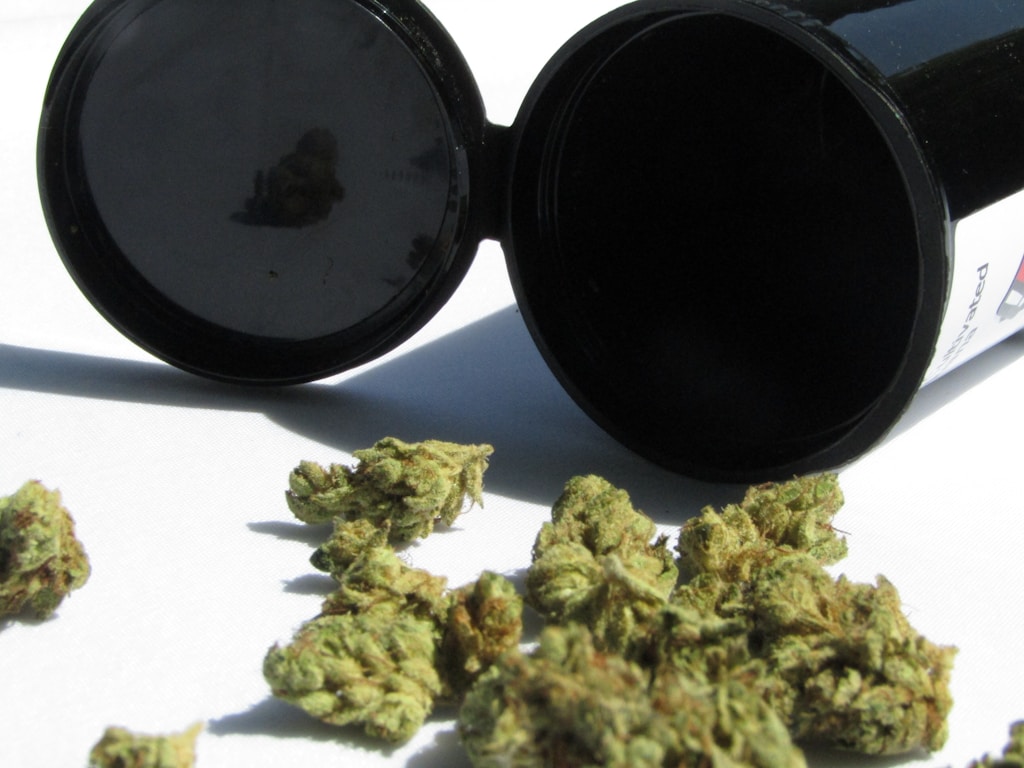
The astute amongst you may have already deduced where this story is going. You won’t be disappointed. Unlike me. I was very disappointed. Still am.
The clinic said no, again. The patient advisor gave me very bad advice. Again.
A doctor’s referral is of no use without proof that you tried two licensed medications. Where have I heard this before? I tried two licensed medications, Xanax, and Valium, and they were not effective in managing my long term condition. What I lack is a piece of paper from 40 years ago confirming this in writing.
I appreciate my situation is unique, and unusual. I have lived in London for 30 years, and this is the first time I have felt penalised for growing up in America.
When I moved to London in 1991, I was 28 years old. It never occurred to me to get my doctor’s notes from my GP, never mind a shrink I had seen 10 years before that. It never crossed my mind, I was young, and reasonably healthy back then. No GP here ever asked for my American medical records. It never came up. How was I supposed to know something I never thought about would come back to bite me in the ass when I least expected it?
Clearly the rules to access medicinal cannabis in the U.K. are arbitrary. Why not three ineffective drugs? Why not one? Why any at all? Cannabis is hardly an experimental treatment for anything. Why do there have to be any barriers to access it in this system, if all the barriers do is prevent you from even speaking to a clinician?
I wasn’t refused a prescription after a considered consultation with a doctor specialising in cannabis. I was refused the chance to even discuss the possibility, because of these arbitrarily constructed rules. I never spoke to a doctor. And it looks like as of now, I never will.
Let me put it another way. Because I can’t prove I that I really tried two pharmaceutical medications that were ineffective, I am not being allowed to speak to a specialist doctor about a safer medication, that I already use, and know from 40 years of continuous use, is extremely safe and effective. That’s just crazynutsykookoo.
Like I said in the letter to my GP, this isn’t about getting high. I can do that now. This is about accessing an appropriate treatment, that I already know is 100% effective, in the safest way possible.
I was given really bad advice. The clinic’s patient advisor advised me poorly. Maybe she was inexperienced, or badly trained. Perhaps they work on commission? I have no idea, but I would like to think that it was simply her enthusiasm to help me, that resulted in me being twice misled.
I ended up wasting not only my own time, but my GP’s time as well. I even apologised to my GP, when I had to speak to her about an unrelated matter recently. She was gracious about it, but I doubt it left her with a good impression of the our domestic medicinal cannabis industry. And that’s a shame. The sooner the NHS backs medicinal cannabis, the better for everyone.
If the clinic had said straight up, your records are abroad, and you don’t have them, so you don’t have a chance, you wouldn’t be reading this now. My expectation was to be turned away, and I would have accepted it then without question.
Instead, the clinic gave me hope, twice, and then snatched that hope away. I was really looking forward to trying what is available legally. I was really looking forward to seeing what a specialist would recommend.
Though I had a bad experience, I still 100% support anything that helps people, and decriminalises them too. One legal cannabis patient in the U.K., or one million, or ten million, it is all positive progress in the right direction.
Just because I got burned by a weirdly arbitrary system, doesn’t mean thousands of other people aren’t being helped every day. They are, and I can still be happy for them.
I could try to game the system. With my mental health history, it would not be difficult to get my GP to prescribe me a couple of drugs for anxiety. Heck, I thought about asking her to prescribe me one Valium tablet, and one Xanax tablet, just to prove a point. Yep, took ‘em, and they still don’t work. But no, that’s not me, that’s not how I roll.
I approached this, as I approach everything, with total honesty and transparency. I don’t think the clinic thought I was lying, the point for them was if they were audited by their regulators, it could leave them exposed. The industry here is still very new, they don’t want to give anyone the slightest excuse to question anything. I understand that. I understand their caution, that’s why this was literally the first question I asked the patient advisor. I anticipated this, and was repeatedly assured it was not an issue. Turned out to be the only issue.
My own reality hasn’t changed. I still self medicate, I’m still an outlaw patient. That won’t change, much as I would prefer to be legal. I am dependant on cannabis, the same way someone with diabetes is dependant on insulin. And I take far worse drugs for other chronic conditions. Hey ho.
The system is entirely too restrictive, anyone should be able to have a private consultation with a cannabis specialist, if they, the patient, believe they would benefit from a private prescription. Wouldn’t that just be considered, sensible compassion?
You can buy aspirin over the counter. Aspirin is more dangerous than cannabis. People sometimes die from taking aspirin. No one has ever died from taking cannabis. Almost everything is more dangerous than cannabis. Cannabis is safe and effective, I know this from decades of Personal Use. There is no reason why cannabis shouldn’t be a first choice treatment for many conditions.
And on the off-chance that someone from one of the many cannabis clinics in the U.K. happens to read this, might you be so bold as to offer me a consultation? I have been as transparent, and honest here, as I would be in real life. Though my first experience was less than satisfactory, I still have an open mind regarding the future. Can you restore my faith in this system?
I hope you enjoyed my sorry tale of medicinal cannabis woe. I think the system will improve in the future, and become less restrictive. My own personal anecdotal evidence is all well and good, but when Project Twenty21 has 20,000 detailed case studies, no one will be able to ignore the evidence any longer. Here’s hoping that day arrives soon.
Doug
the northlondonhippy
After a 30 year career as a journalist, working for some of the largest news organisations in the world, including Associated Press, and Reuters, and 15 years as an overnight duty news editor for BBC News, Doug – the northlondonhippy is now a full time writer, hippy, and drug law reform campaigner.
Doug is also the author of “Personal Use by the northlondonhippy.” “Personal Use” chronicles Doug’s first 35 years of drug use, while calling for urgent drug law reform. It’s a cracking read, you will laugh, you will cry, and you can bet your ass that you will wish you were a hippy too!
Doug’s next book, “High Hopes” should have been published by now, but it is hard to write a book about remaining optimistic in the face of adversity, during a global pandemic. Try it yourself!
For the last year, Doug has spent most of his time hiding away from a killer virus. Bet many of you have too.
You can find Doug – the northlondonhippy on Twitter: @nthlondonhippy.





























































































